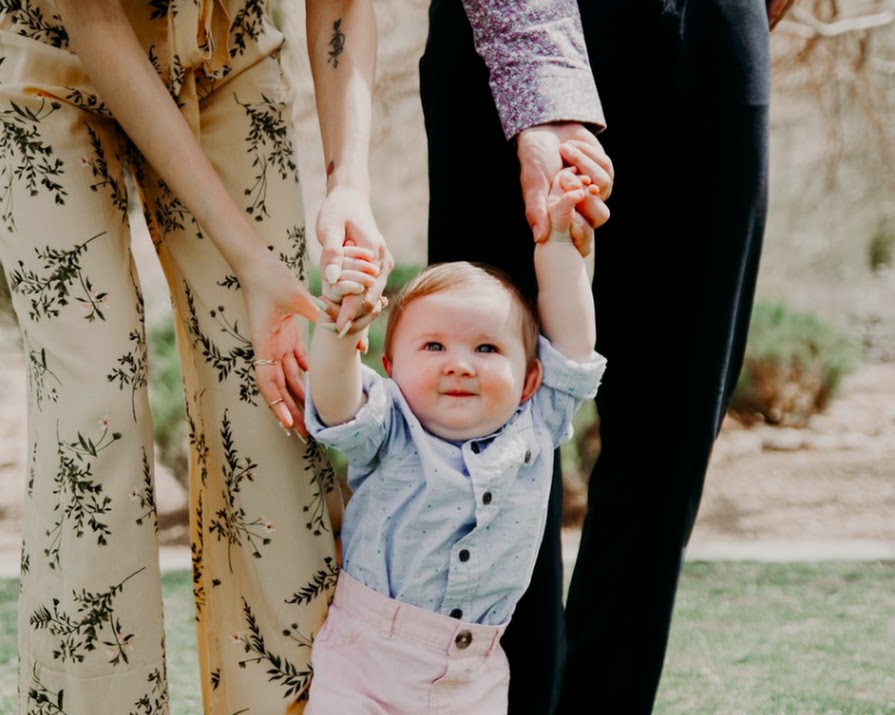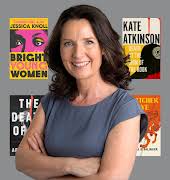

By Amanda Cassidy
24th May 2019
24th May 2019

Research has found that the “presence of children” is the main driver of the gender gap in career outcomes because employers can’t accommodate parent’s schedules. Why are we still trying to hide the fact that we have family commitments, wonders Amanda Cassidy?
Emily Oster is an economist at Brown University. This week she started a conversation about some of the more subtle aspects of juggling career and parenting. In an essay for The Atlantic, she pointed out the child-shaped elephant in the boardroom. “The general sense is that everyone should adopt the polite fiction that after the first several months of maternity leave, the child disappears into a void from which he or she emerges for viewing and discussing only during nonworking hours.”
“Women told me that they hid their pregnancies until well into the third trimester, wearing loose-fitting clothes to avoid telling their bosses or venture-capital funders that they were expecting. Once they had kids, some told me they simply never discussed them. If they had to deal with a child-related issue, they lied about why they were leaving work”.
Related: Five Irish women on the so-called work-life balance.
But why do we have to pretend that our role as a parent is insignificant? Why isn’t the onus on employers to make more family-friendly policies so we don’t lose parents, let’s be honest, mothers, to the workplace?
Normalising parenthood
“I didn’t want my boss to think that my role as a parent could affect my job”.
Olivia worked as a retail assistant for 8 years in a well-known fashion brand. On her return to work, she felt a pressure to avoid bringing up her children in any shape or form. “I’d just gone through the biggest thing in my life – bringing new life into the world and yet I had to pretend none of it existed. When my daughter was sick I’d say I was sick because there was something more justifiable about taking a sick day myself instead of admitting it was for my child. If I had to get home for a birthday party or for bedtime, I’d be vague about the reasons as I didn’t want my boss to think that my role as a parent could affect my job. It didn’t by the way.”
So perhaps we have ourselves to blame for cultivating this secrecy when it comes to our parenting responsibilities? Oyster says it is not only about changing the policies in a workplace, but it is also about the nuances and the climate around parental responsibilities. “Once parents start acknowledging their child-care obligations openly, the need for specific changes may become apparent. For example, little kids go to sleep early. The hours between, say, 5 p.m. and 8 p.m. are really central for parents. What if they spoke up about that more? Employers might then see the benefit of making clear to parents that they needn’t fulfil their work obligations within the confines of a traditional day.
It takes a village…
Many of us would be happy to log on before our kids are up or after they are in bed. For me, a phone call at 8:15 p.m. is infinitely better than a meeting at 6 p.m. Openness about, say, sickness would also force employers to confront that even the best-laid child-care plans break down. Parents should have the flexibility to (occasionally) have a kid in their office or, better yet, be given access to emergency childcare.”
“Mothers and fathers ought to come clean about the nature of their lives”
In other words, let’s stop pretending we are not parents at work. It doesn’t have to be the boss’s problem but why are we still at the stage when we view raising the next generation as a problem? Let’s be upfront about our obligations. Let’s admit ‘I have to leave on time because I promised my children I’d make cupcakes with them today’.
Emily points out the reality behind juggling work and parenting. “Put simply, mothers and fathers ought to come clean about the nature of their lives. We can’t fix problems that we pretend don’t exist; we can’t improve the lot of parents at work if we pretend we aren’t parents”.
Feature image: @NeOnBrand, Unsplash.com
More like this:
- Is over-parenting making the next generation fragile and too sensitive?… here
- Breast or bottle – why we need to stop shaming other women for their parenting choices… here
- I’m not used to the swings and roundabouts of parenting – even seven years in.. here






















